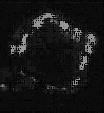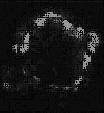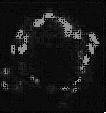Method for building dairy cattle breast acinus lactation model in vitro
A construction method and mammary gland technology, applied in the field of in vitro construction of lactation models, can solve the problems of low authenticity of simulated in vivo environment, and achieve the effect of increasing intuition and high authenticity
- Summary
- Abstract
- Description
- Claims
- Application Information
AI Technical Summary
Problems solved by technology
Method used
Image
Examples
specific Embodiment approach 1
[0013] Specific embodiment one: the in vitro construction method of dairy cow mammary gland acinar lactation model according to the following steps in this embodiment: one, matrix (Growthfactor-reduced Matrigel TM ) was melted at 4°C, and spread on a pre-cooled cell culture plate at 4°C, the matrix thickness of each well was 0.5 mm, and then placed in a cell culture incubator at 37°C for 30-60 minutes to obtain a matrix gel cell culture plate ; 2. Using trypsin with a mass concentration of 0.25% and EDTA with a mass concentration of 0.02% to digest primary cultured milk cow mammary gland epithelial cells at 4 months of pregnancy for 5 minutes, and then centrifuged at 1500r / min for 5 minutes to collect the cells; 3. The collected cells were suspended in 4ml of assay medium to prepare a cell suspension, and then diluted with assay medium to a density of 1×10 4 ; 4. Add 2ml of matrix gel to the cell culture plate with a density of 1×10 4 The cell suspension was placed in an incu...
specific Embodiment approach 2
[0027] Embodiment 2: This embodiment differs from Embodiment 1 in that in step 1, place it in a cell culture incubator at 37° C. for 40 to 50 minutes to obtain a matrix gel cell culture plate. Other steps and parameters are the same as those in Embodiment 1.
specific Embodiment approach 3
[0028] Embodiment 3: This embodiment differs from Embodiment 1 in that in Step 1, place it in a cell culture incubator at 37° C. for 45 minutes to obtain a matrix gel cell culture plate. Other steps and parameters are the same as those in Embodiment 1.
PUM
 Login to View More
Login to View More Abstract
Description
Claims
Application Information
 Login to View More
Login to View More - R&D
- Intellectual Property
- Life Sciences
- Materials
- Tech Scout
- Unparalleled Data Quality
- Higher Quality Content
- 60% Fewer Hallucinations
Browse by: Latest US Patents, China's latest patents, Technical Efficacy Thesaurus, Application Domain, Technology Topic, Popular Technical Reports.
© 2025 PatSnap. All rights reserved.Legal|Privacy policy|Modern Slavery Act Transparency Statement|Sitemap|About US| Contact US: help@patsnap.com



